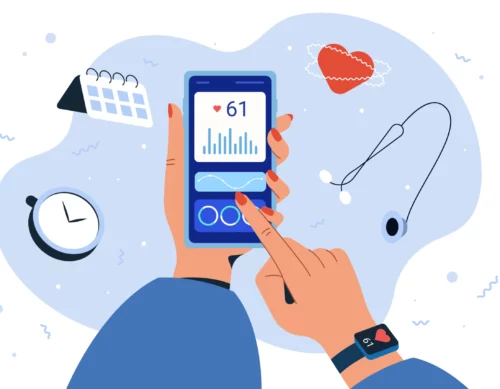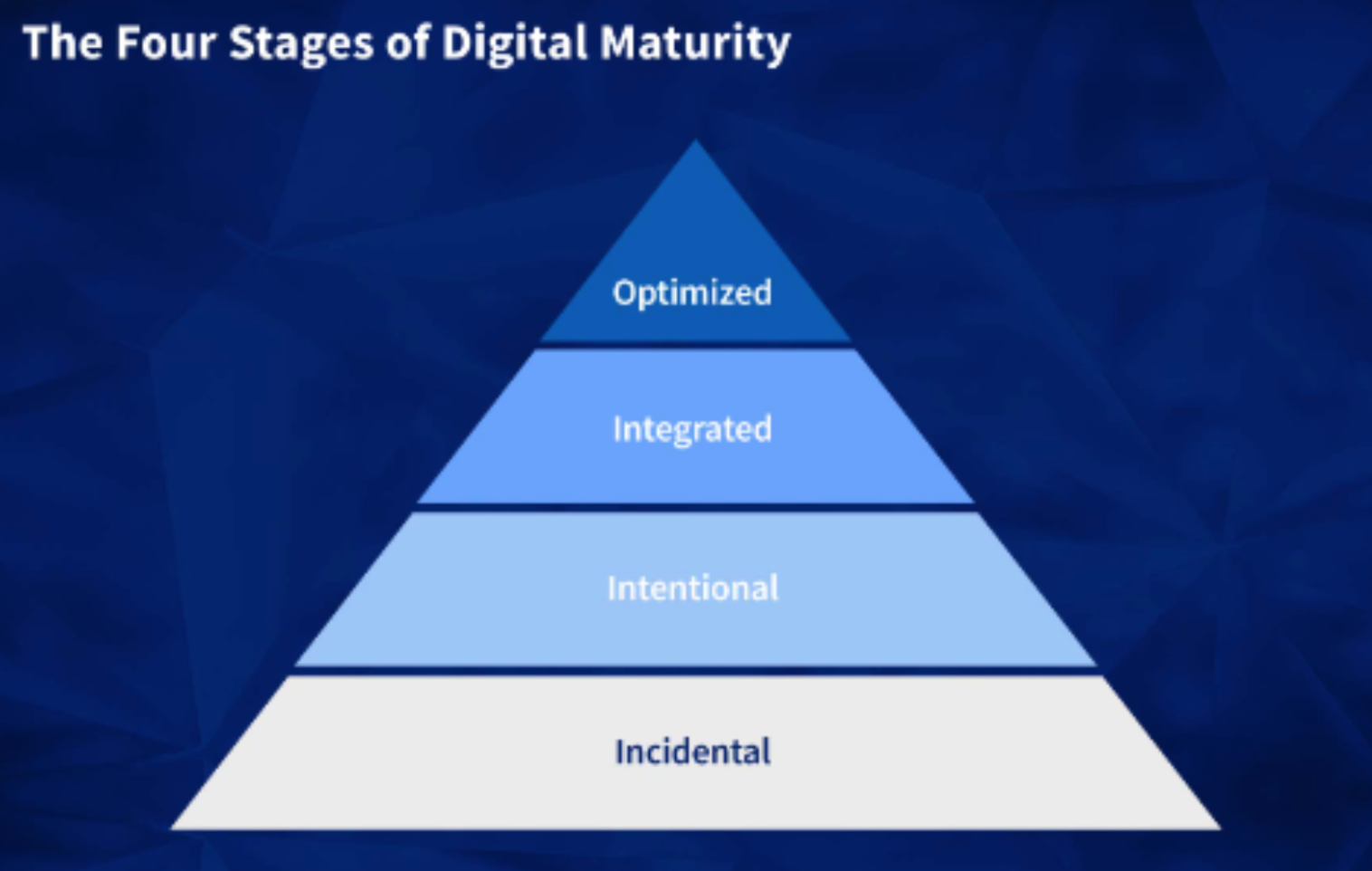We are all aware of the popular saying “Health is Wealth” and the digitization in healthcare helps in making a bridge for patients and healthcare providers to create an easy healthcare system and accessible for both patients and healthcare providers.
Innovation and transformation is the new way of the world, where every sector we have seen to go through the process of digitalization, and now it’s happening to the healthcare industry. Healthcare management is now going through drastic changes due to digital advances.
In the ever-evolving landscape of healthcare, a digital revolution is underway. The blog you’re about to explore delves into the profound impact of digitization in healthcare, focusing on how it bridges gaps and enhances accessibility.
We’re about to embark on a journey into the heart of healthcare’s digital transformation.
The Significance of Digitization in Healthcare
Digitization in healthcare is a game-changer, and its impact is significant, even for those not familiar with the industry. Let’s break down the key roles and benefits of digitization in healthcare in a way that’s easy to understand:
- Enhanced Access to Information: Digitization allows healthcare providers to access patient records, test results, and medical histories quickly and securely. Patients can also access their health information, empowering them to take control of their own care.
- Efficient Record-Keeping: Digitization eliminates the need for paper records, reducing the risk of errors, and cost-effectiveness by ensuring that healthcare professionals have accurate and up-to-date information at their fingertips. This leads to more precise diagnoses and treatments.
- Data Analytics for Better Decision-Making: Digital healthcare systems collect and analyze vast amounts of data. This data helps healthcare professionals identify trends, predict outbreaks, and improve treatment plans, ultimately leading to better patient outcomes.
- Reduced Administrative Burden: Administrative tasks like appointment scheduling and billing are streamlined through digitization, reducing administrative burdens on healthcare providers. This means more time can be devoted to patient care.
Digitization in healthcare is all about making healthcare more accessible, efficient, and patient-centered. It ensures that healthcare is not only more effective but also more convenient and safer for everyone, regardless of their familiarity with the industry.

The Evolution of Digital Healthcare
Digital transformation of various sectors is something that is very conventional in today’s century but regretfully, digitization in healthcare and pharmaceutical sectors has been a latecomer. Yes, that’s right!
In fact, according to a recent survey, just 7% of healthcare and pharmaceutical firms have gone digital, compared to 15% of companies in other industries.
Despite this, the United States’ healthcare industry is massive, with national health spending expected to exceed $5.7 trillion by 2026. There is still time for you to become proficient in digital technology and use it to increase your revenue. However, in order to change your ordinary practice into a thriving, digital machine by 2023, you must first understand the new healthcare scene.
(from- https://www.digitalauthority.me/resources/state-of-digital-transformation-healthcare/)
Transition to Electronic Health Records (EHRs)
Electronic Health Records (EHRs) are a critical aspect of modern healthcare management. Here are some key points and benefits of EHRs, for you to understand:
Centralized Health Information:
- EHRs act like a digital file cabinet for your health information. They store all your medical records, test results, medications, and doctor’s notes in one place. As a result makes it one click away for healthcare providers to access up-to-date information when you need care.
Reduced Paperwork:
- EHRs mean less paperwork for doctors and nurses. That’s a win because it frees up more of their time to focus on you, the patient.
Improved Accuracy:
- With EHRs, the chances of errors get reduced and patients are provided with improved quality-of-care coordination. According to Statista, the market value of EHRs is expected to reach $47.2 billion in 2027 up from $29 billion in 2020.
Research and Public Health:
- EHRs help researchers learn more about diseases and treatments. They also help public health agencies track and control outbreaks like the flu or pandemics like COVID-19.
Cost Savings:
- Over time, EHRs can save money for both patients and healthcare systems. Less paperwork, fewer duplicated tests, and more accurate care mean cost savings for everyone.
In a nutshell, Electronic Health Records make healthcare smoother, safer, and more focused on patients. They’re like a digital health assistant for doctors and a personal health library for you, all aimed at keeping you healthier and safer.
Leveraging Health Information Exchange (HIE)
Health Information Exchange (HIE) is a crucial aspect of healthcare management. HIE is like a secure email system for healthcare. It allows different healthcare providers, like doctors, hospitals, and labs, to share your health information electronically.
With HIE, your medical records can be quickly and safely shared among healthcare professionals. This ensures they have a complete picture of your health which is quite helpful at times of emergencies and can be a life-saver for providing immediate help.
For patients with chronic conditions, HIE ensures that your entire care team is on the same page. This can lead to more effective management of conditions like diabetes, heart disease, or even cancer.
It also allows patients to access their own health records. This empowers you to track your health, understand your treatments, and make informed decisions.
Protecting your health information is a top priority in Health Information Exchange. There are strict security measures in place to safeguard your data.
In the end, Health Information Exchange is like a digital bridge connecting healthcare providers and empowering patients. It ensures that your health information is accessible, accurate, and secure, leading to better-coordinated care, improved patient safety, and a more efficient digital healthcare system.

The Role of Big Data in Healthcare
Analysis of big data helps patients make informed and wise decisions. Patients can access their own health data and make informed decisions about their care, lifestyle, and treatment options.
Big data provides patients with a range of treatment options and helps them understand the potential risks and benefits of each choice.
By analyzing data related to health behaviors and genetic predispositions, patients can take proactive steps to prevent illnesses. Hospitals and healthcare management systems use big data to allocate resources efficiently, ensuring that patients receive the right care at the right time.
Ensuring Data Security in Healthcare:
Data security is paramount in healthcare to protect sensitive patient information. Robust measures like encryption, access controls, and regular audits safeguard electronic health records from unauthorized access or breaches. Strict adherence to privacy laws, like HIPAA, ensures that patient data is treated with the utmost confidentiality, maintaining trust and compliance.
Government Initiatives of Digitization in Healthcare:
Governments worldwide are promoting healthcare digitization through initiatives and policies. They provide funding, incentives, and guidelines to encourage healthcare institutions to adopt digital systems. These initiatives aim to standardize healthcare processes, reduce costs, and improve patient care quality, ultimately benefiting the public and healthcare providers.
Future Projections: What Lies Ahead:
The future of digitization in healthcare promises further advancements in telemedicine, AI applications, and precision medicine. Remote monitoring, wearable technology, and 5G networks will expand, offering more personalized care options. In order to improve public health and accessibility, healthcare must be cost-effective, patient-centered, and accessible.
To sum up, the dynamic interaction between efficient digitization in healthcare and management holds forth the possibility of a better future. Government support promotes change as technology and data security develop, and breakthroughs lurk on the horizon.
Together, they create the groundwork for a more accessible, cost-effective, and patient-centered healthcare landscape. This revolutionary path ensures improved treatment for everybody, ushering in a new era in healthcare development.



